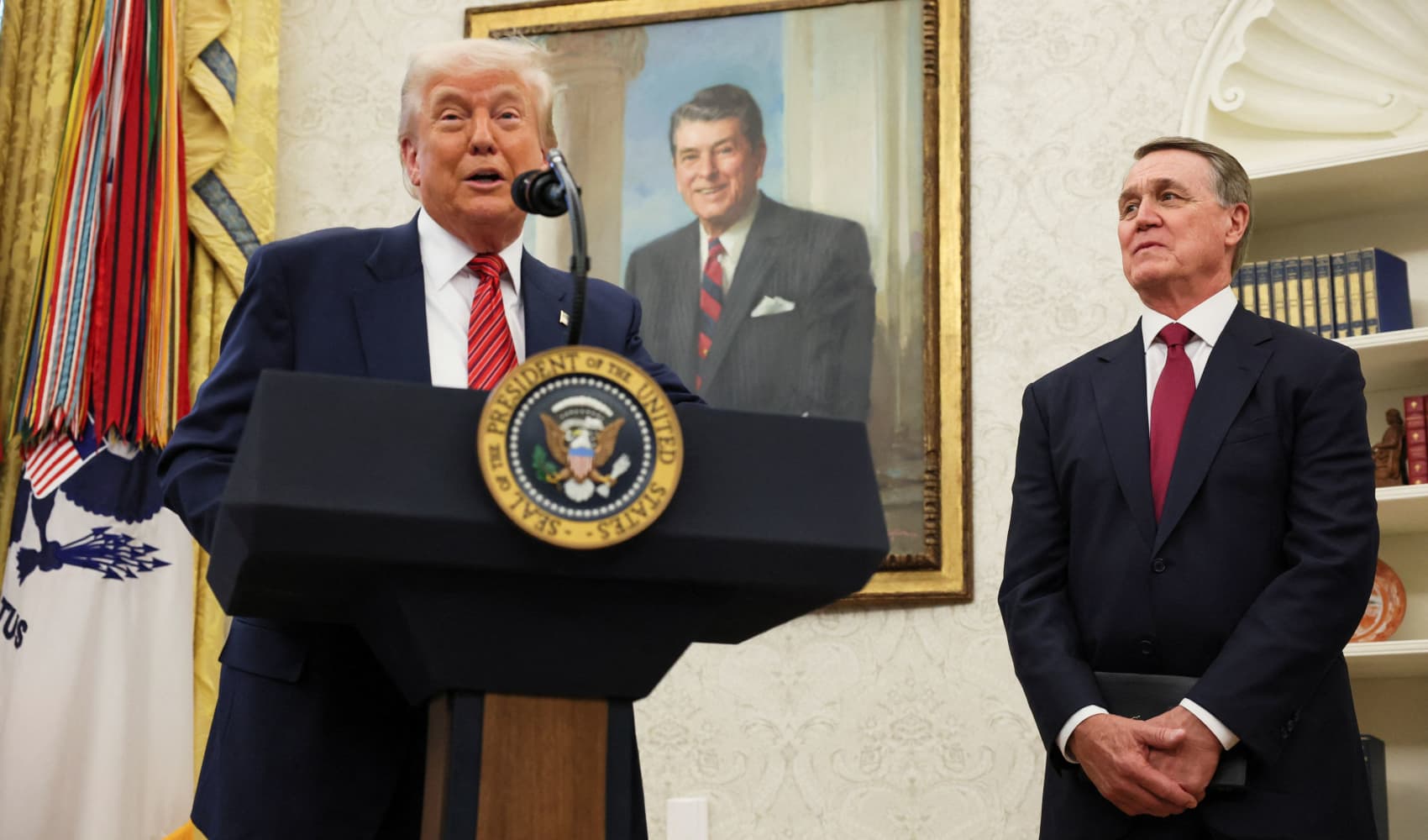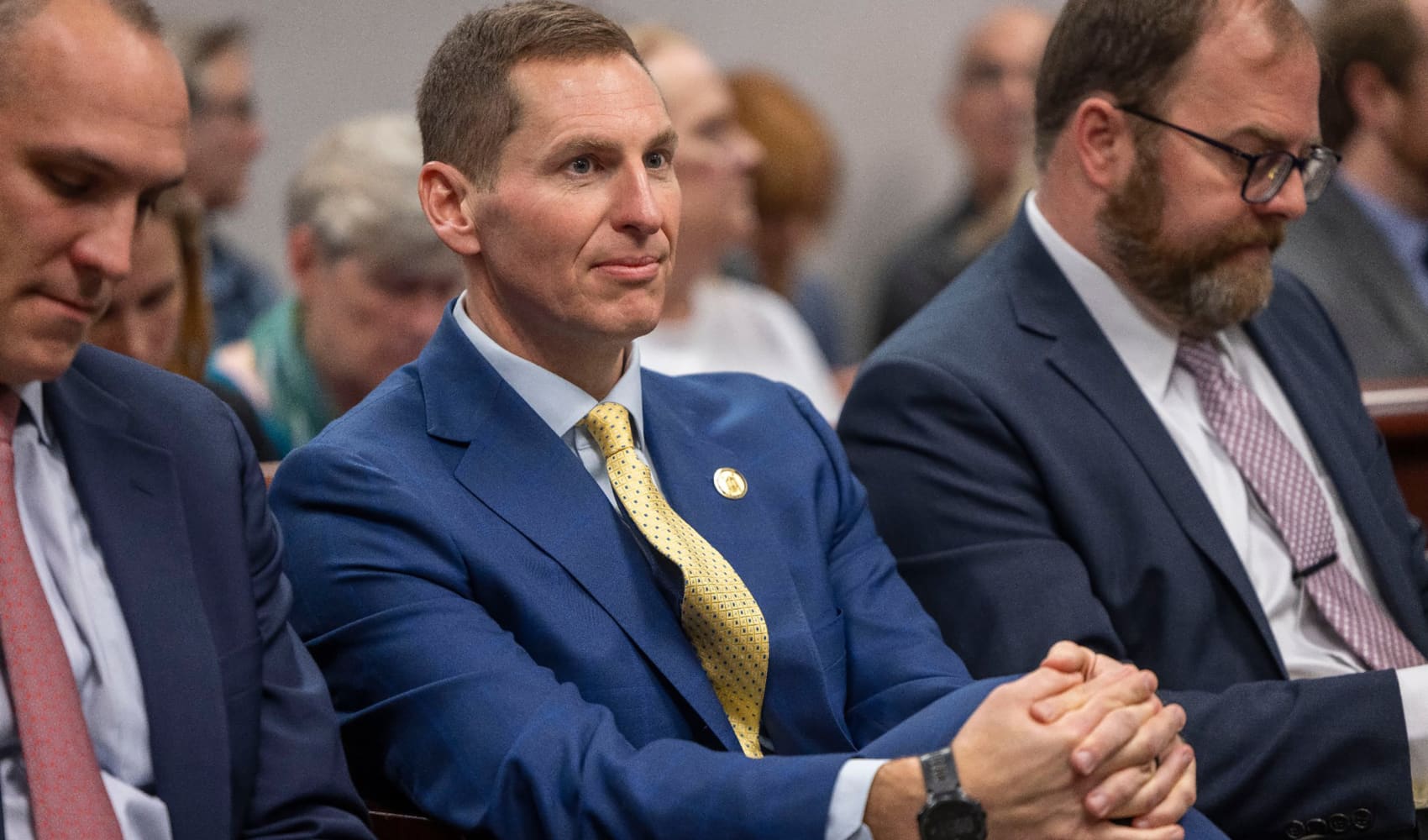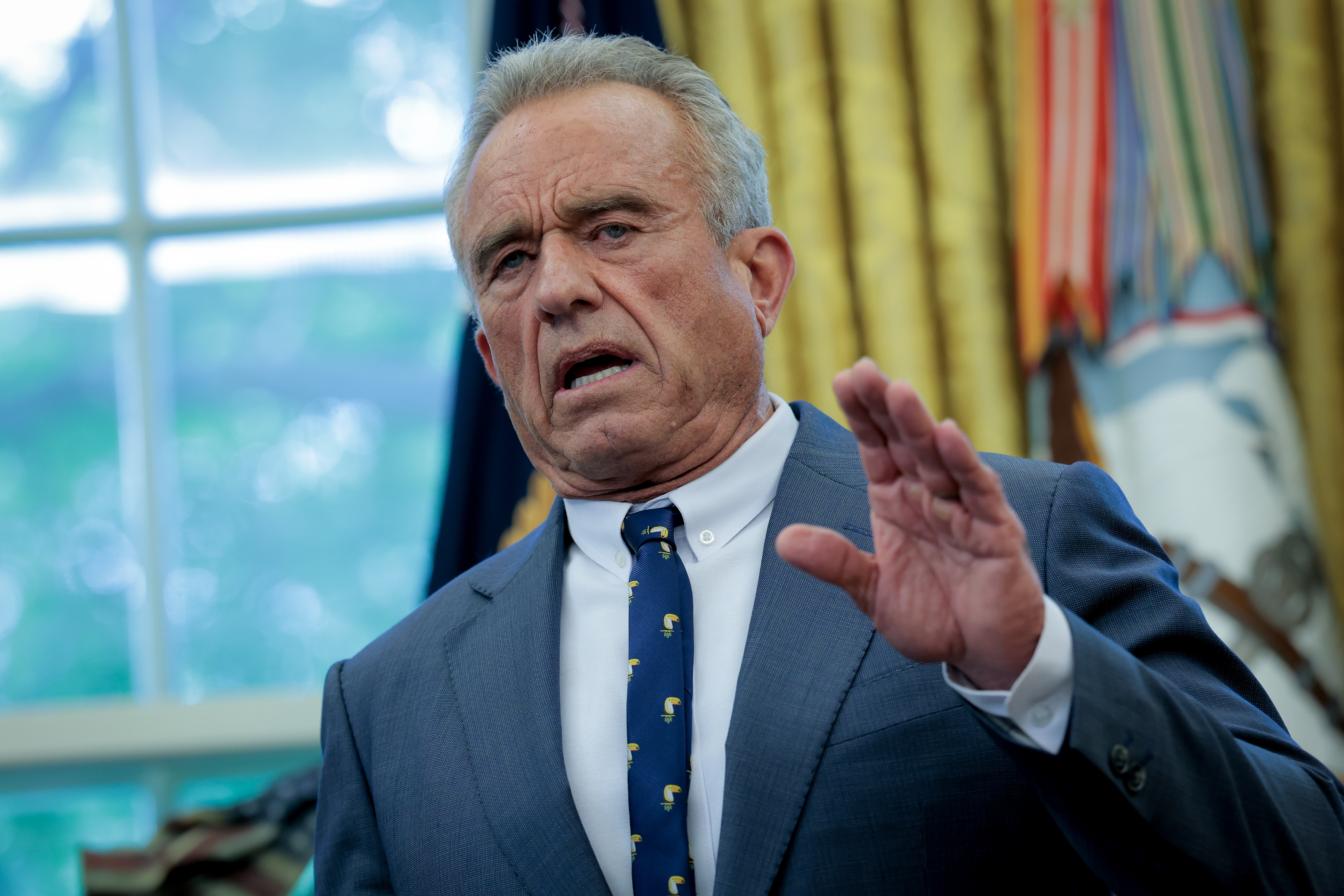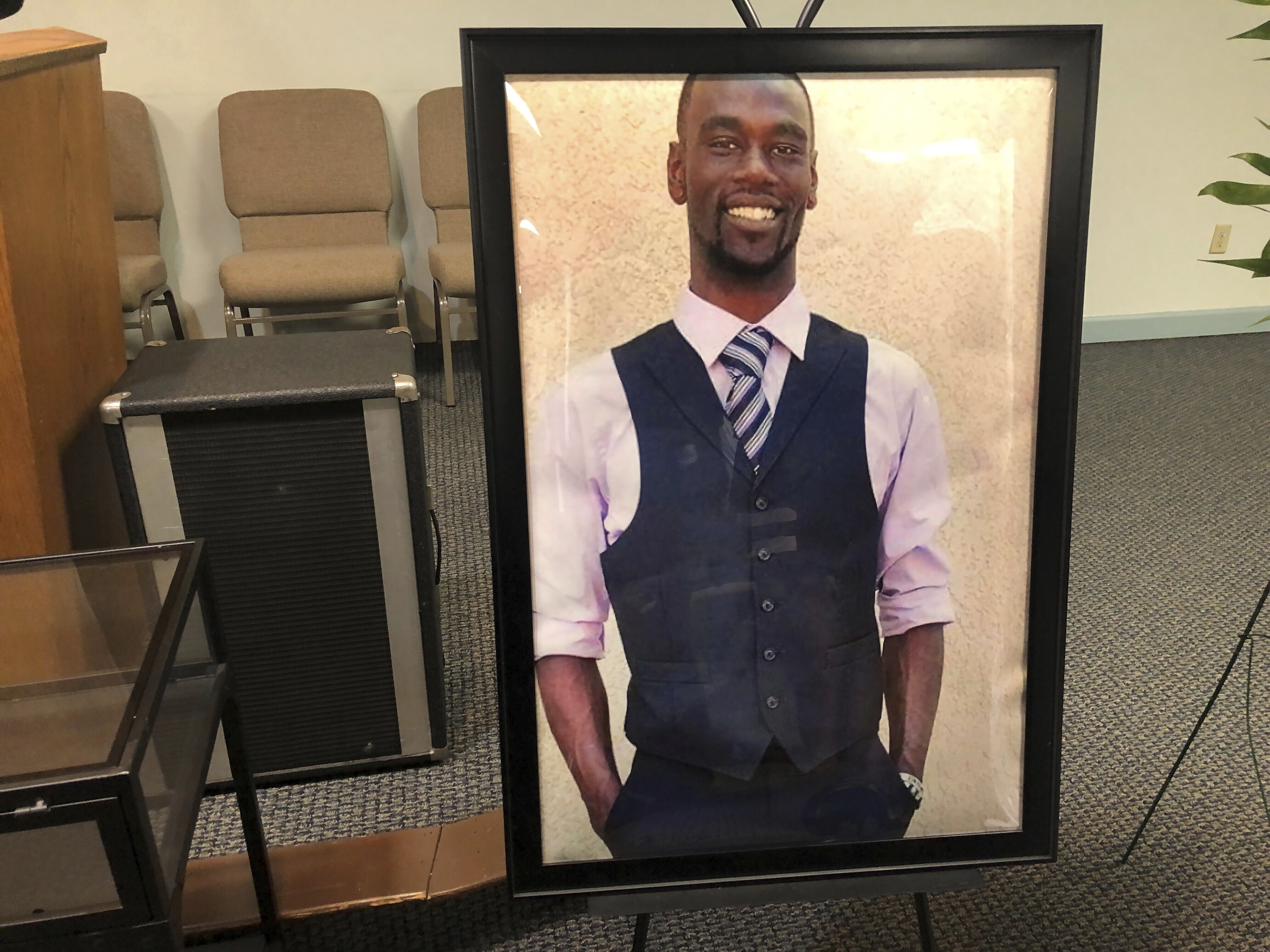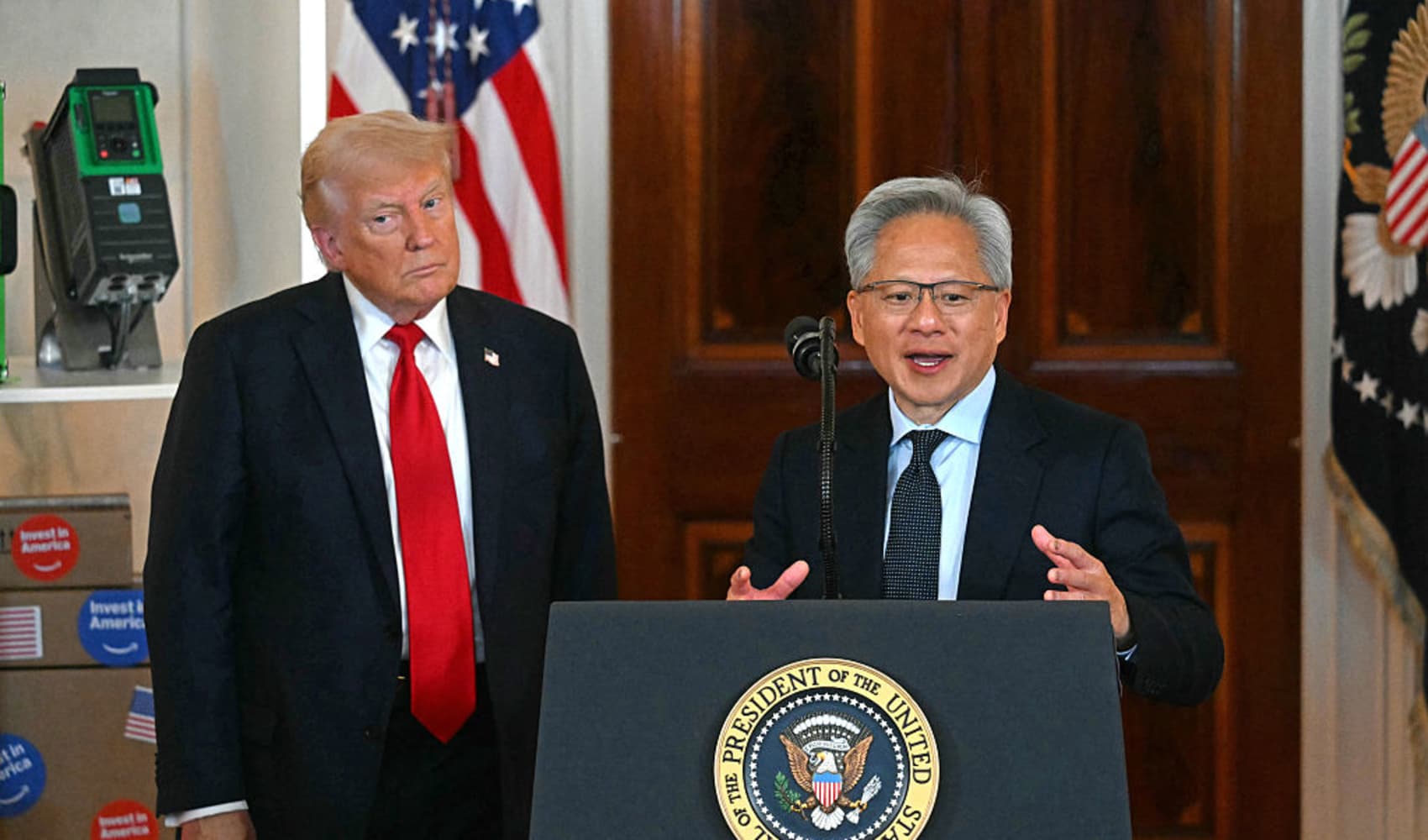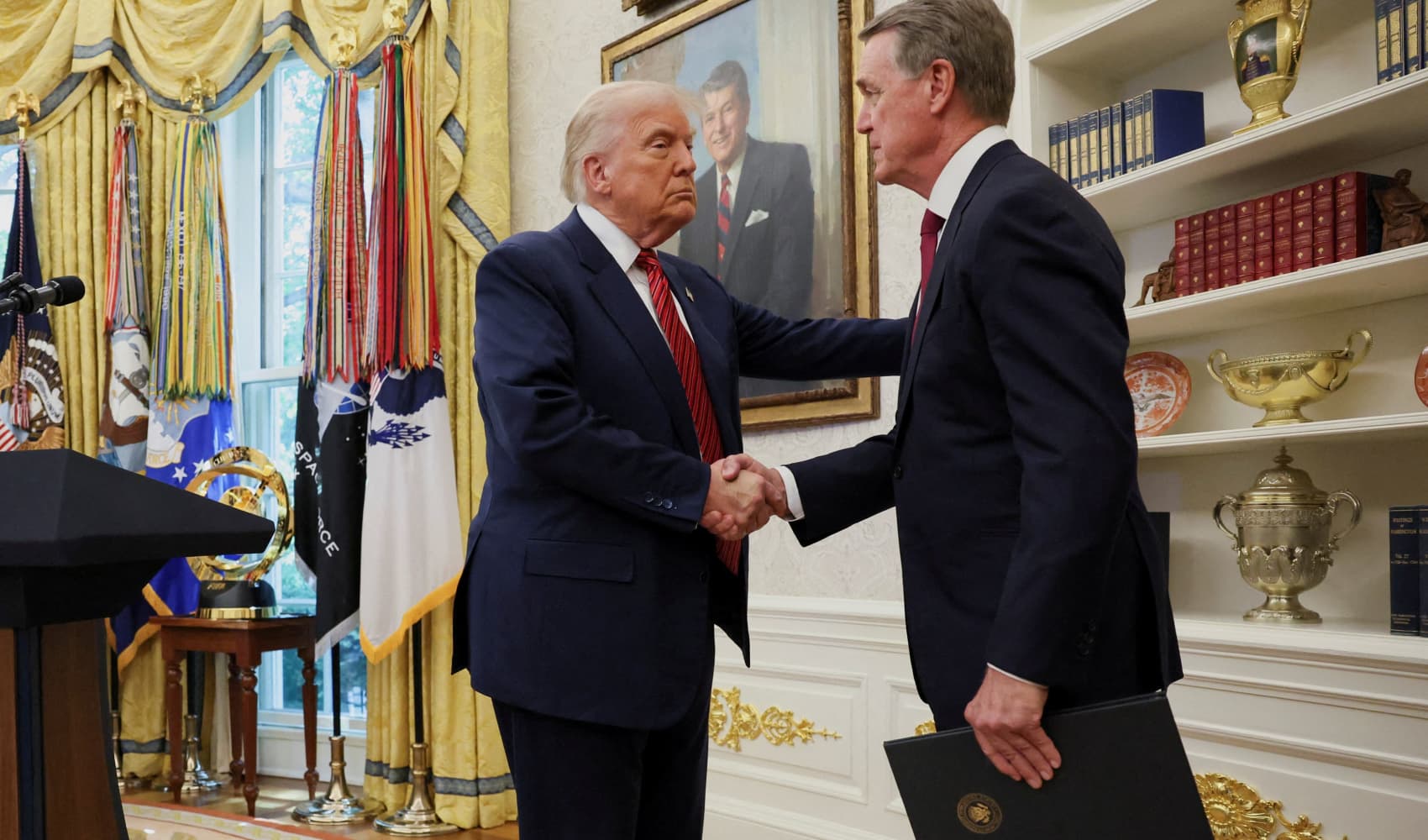China Trade War: Trump's High Tariffs Impact Talks
Trump Digs In: High China Tariffs to Stay, For Now
Introduction: The Tariff Standoff Continues
The trade war between the United States and China has been a rollercoaster, hasn't it? One minute we're hearing whispers of a potential deal, the next, we're back to square one. Now, buckle up, because the latest twist is that President Trump is doubling down on his existing tariffs on Chinese goods. No concessions, no wiggle room – at least, not yet. This hardline stance comes just days before crucial trade talks are scheduled to take place. So, what does this mean for businesses, consumers, and the global economy?
Trump's Firm "No": A Clear Signal
It's not often we get such a straightforward answer from a politician. When directly asked whether he would consider easing the 145% tariffs currently in place to incentivize China to come to the negotiation table, Trump's response was a resounding "no." This isn't just a casual remark; it's a deliberate message being sent to Beijing. Think of it as a poker player going all in, signaling strength and a willingness to play hardball.
Bessent's Swiss Mission: A Glimmer of Hope?
Despite Trump's unwavering stance on tariffs, there's still a sliver of hope for progress. Treasury Secretary Scott Bessent is scheduled to meet with his Chinese counterpart in Switzerland. This meeting presents an opportunity to discuss the current trade and economic issues plaguing the relationship between the two countries. Is this the beginning of the end, or just another bump in the road? Only time will tell.
The Rationale Behind the Tariffs: Leveling the Playing Field
Addressing Unfair Trade Practices
Trump's primary justification for imposing these tariffs has always been to address what he considers unfair trade practices by China. These practices include intellectual property theft, forced technology transfers, and state-sponsored subsidies that give Chinese companies an unfair advantage. He argues that the tariffs are necessary to protect American businesses and workers. It's like a parent stepping in to ensure fair play between siblings.
Protecting American Industries
Another key argument is that tariffs protect American industries from being undercut by cheaper Chinese imports. By making Chinese goods more expensive, the thinking goes, American companies can compete more effectively and maintain jobs within the United States. This is a core element of Trump's "America First" agenda.
The Impact of Tariffs: A Double-Edged Sword
Rising Costs for Consumers
While the tariffs may aim to protect American industries, they also come at a cost to consumers. Importers often pass on the tariff costs to consumers in the form of higher prices for goods. This can lead to inflation and reduce purchasing power for households. It's like a tax, but specifically on imported goods.
Challenges for Businesses
Businesses that rely on Chinese imports, either for raw materials or finished products, also face challenges. They may have to absorb the increased costs, find alternative suppliers, or raise prices for their own products. This uncertainty can disrupt supply chains and hinder business growth.
China's Response: Tit-for-Tat Retaliation
Counter-Tariffs on American Goods
China has responded to the U.S. tariffs with its own set of tariffs on American goods. This tit-for-tat retaliation has escalated the trade war and hurt American farmers and businesses that export to China. It's a game of economic brinkmanship, with neither side willing to back down.
Seeking Alternative Markets
In response to the tariffs, China is actively seeking alternative markets for its exports and reducing its reliance on the United States. This includes strengthening trade ties with other countries in Asia, Europe, and Africa. China is diversifying its economic relationships to mitigate the impact of the trade war.
The Global Implications: Ripple Effects
Uncertainty in Global Trade
The trade war between the U.S. and China has created significant uncertainty in the global trade environment. Businesses are hesitant to invest and expand, fearing that the trade landscape could change at any moment. This uncertainty can dampen global economic growth. It's like a storm cloud hanging over the world economy.
Disruptions to Supply Chains
The tariffs have also disrupted global supply chains, as companies scramble to find alternative suppliers and adjust to the changing trade landscape. This can lead to inefficiencies and higher costs throughout the global economy. Globalized production networks are being reshaped by the trade war.
The Upcoming Trade Talks: What to Expect
Areas of Negotiation
Despite the current tensions, there are still areas where the U.S. and China could potentially find common ground. These include issues such as intellectual property protection, market access for American companies, and enforcement mechanisms for trade agreements. The upcoming trade talks could focus on these areas.
Potential Outcomes
The potential outcomes of the trade talks range from a comprehensive trade deal to a continuation of the status quo. A comprehensive deal would involve both sides making concessions and agreeing to a set of rules governing trade relations. However, if the two sides remain far apart, the trade war could continue for the foreseeable future. The stakes are high, and the outcome is uncertain.
The Political Context: Domestic Pressures
Trump's Re-Election Campaign
Trump's stance on trade with China is also influenced by domestic political considerations. He has repeatedly promised to be tough on China and protect American jobs, and he needs to deliver on those promises to maintain his support base. The trade war is a key part of his re-election campaign strategy.
Congressional Support
While there is some bipartisan support for addressing unfair trade practices by China, there is also concern about the economic impact of the tariffs. Some members of Congress have urged Trump to pursue a more diplomatic approach to resolving the trade dispute. The trade war is a contentious issue within Congress.
The Long-Term Outlook: A New Normal?
Regardless of the outcome of the upcoming trade talks, the relationship between the U.S. and China is likely to remain complex and challenging. The two countries are strategic rivals, and their economic interests are increasingly intertwined. The trade war may be a sign of a new normal in U.S.-China relations.
The Future of Tariffs: A Shifting Landscape
Permanent or Temporary?
The question on everyone's mind is whether these tariffs are here to stay or just a temporary measure to pressure China. Will they become a permanent fixture of the global trade landscape? It’s a question with no easy answer, and one that will likely be determined by the long-term trajectory of U.S.-China relations.
Impact on Global Supply Chains
These tariffs are already reshaping global supply chains. Companies are actively seeking alternative manufacturing locations and diversifying their sources of goods. This shift could have lasting implications for the global economy. It's a forced evolution of how the world does business.
Conclusion: Navigating the Trade War Uncertainty
President Trump's decision to maintain high tariffs on China adds another layer of complexity to the ongoing trade war. While the rationale is rooted in addressing unfair trade practices and protecting American industries, the impact is felt by consumers, businesses, and the global economy. The upcoming trade talks offer a potential pathway to resolution, but the outcome remains uncertain. Businesses and consumers alike must navigate this uncertain landscape with caution, adaptability, and a keen understanding of the shifting dynamics between the world's two largest economies.
Frequently Asked Questions (FAQs)
- Q: What exactly are these tariffs on China and why are they so high?
- A: The tariffs are taxes imposed on goods imported from China. They are set at 145% to make Chinese goods more expensive, aiming to pressure China to change its trade practices and protect American industries.
- Q: How do these tariffs affect the average American consumer?
- A: The tariffs can lead to higher prices for imported goods, impacting the purchasing power of American consumers and potentially causing inflation.
- Q: What is China's response to the U.S. tariffs?
- A: China has retaliated with its own tariffs on American goods, escalating the trade war and hurting American businesses that export to China.
- Q: What are the key issues being discussed in the upcoming trade talks?
- A: The talks are expected to focus on issues like intellectual property protection, market access for American companies, and enforcement mechanisms for trade agreements.
- Q: What can businesses do to mitigate the risks associated with the trade war?
- A: Businesses can diversify their supply chains, seek alternative markets, and proactively manage their costs to minimize the impact of the tariffs.
